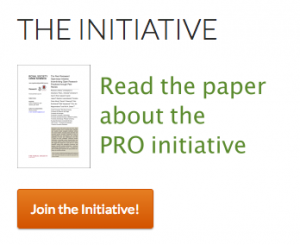Hooray for Open Data Day!
What if, just for one day, we all took some time to focus and think about Open Data? March 4th, 2017 is a day to do just that—to promote awareness and use of Open Data.
Hooray for Open Data Day!
A Global Phenomenon
There are events happening all over the place, literally all around the world; what started as a fairly small event in 2010 is now a global phenomenon and it’s open to everyone.
The focus this year is on four key areas:
- Open research data;
- Tracking public money flows;
- Open data for environment;
- Open data for human rights.
These are all incredibly important topics, and I’ll be looking to see what comes out of the various events. And the truth is that concerted efforts in any or all of these areas can have real and tangible impacts on global public health and on pre-clinical and clinical research.
Burkina Faso, Argentina, Mexico, Nigeria, and Indonesia were highlighted as five countries to watch in 2017 in a (paid) piece in the Guardian today, with amazing Open Data initiatives already underway. Efforts in these locations illustrate how openness and open data can also positively impact education, economics, and politics.
The Power of Open Data
As discussed by Jeremy Berg in a recent Science editorial[1], pooling genomic, sociological and other data from studies on patients with autism spectrum disorders (ASD) has enabled spatial studies of ASD case clustering to search for environmental factors that—alongside genetic factors—may contribute to the disorder. Next up Berg notes that data from five cohort studies and five case-control studies, when combined into a meta-analysis, find no evidence for any association between ASDs and vaccinations or vaccine components. He also details how gathering multiple years worth of digitised data from all notifiable contagious diseases into an open resource has yielded an estimate that vaccination programs have prevented ~100 million cases of serious childhood diseases.
Berg sums up: “These examples illustrate how data collection and sharing through publication and other innovative means can drive research progress on major public health challenges. Such evidence, particularly on large populations, can help researchers and policy-makers move beyond anecdotes—which can be personally compelling, but often misleading—for the good of individuals and society.”
What Can You DO?
All researchers can be involved in Open Data. Even if you can’t physically take part in an event tomorrow, you can show your support in ongoing and very effective ways…
You can make all of your own data available. Spend some time making sure your lab has a data management plan for all research that is currently being done and plan on making all of the relevant corresponding data for your next publication open. Encourage your colleagues to do the same.
Also, every time you agree to be Editor or Reviewer for a manuscript, you should assess the availability of the data at the same time as you consider the experiments and whether the results support the conclusions. This expectation for access to data is becoming more and more commonplace; see the write-up in Nature[2] just this week on an Editor who was asked to resign because he had stated that he, along with others, would reject any papers that won’t publicly share the underlying data.
And this has turned into a full scale initiative: The Peer Reviewers’ Openness Initiative is open for others to join! Such a situation—as evidenced by a write up in Nature—is still considered newsworthy, but this editorial stance is laudable and is the gold standard that we should all aspire to whenever sharing data is ethically appropriate.
Remember you can also track what is happening for Open Data Day 2017 on twitter, following the hashtag #OpenDataDay2017
- Jeremy Berg. Science 17 Feb 2017: Vol. 355, Issue 6326, pp. 669 DOI: 10.1126/science.aam9455
- “Peer-review activists push psychology journals towards open data” Gautam Naik, 1 March, 2017 http://www.nature.com/news/peer-review-activists-push-psychology-journals-towards-open-data-1.21549



[…] innovation. An integral component of the selection process is demonstrated use and generation of open data, so PLOS is proud that this year’s winner of the Open Science Prize is PLOS author and […]
[…] innovation. An integral component of the selection process is demonstrated use and generation of open data, so PLOS is proud that this year’s winner of the Open Science Prize is PLOS author and […]